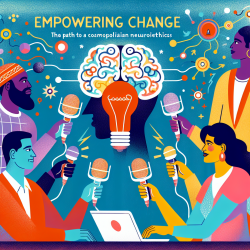The YoPA project, or Youth-centered Participatory Action project, presents a groundbreaking approach to addressing health disparities among adolescents in urban environments. By engaging adolescents as active participants in co-creating interventions, this initiative aims to improve social and physical environments for better health outcomes. This blog explores how practitioners can leverage the insights from the YoPA project to enhance their skills and contribute to meaningful change.
The YoPA Approach: A Paradigm Shift
The YoPA project is built on a participatory action research framework that prioritizes the voices of adolescents living in vulnerable situations. By involving them directly in the design and implementation of interventions, YoPA seeks to tailor solutions that are context-specific and relevant to their needs. This approach contrasts with traditional top-down methods that often fail to resonate with young people.
Key Components of the YoPA Framework
- Systems Perspective: Understanding the complex interactions within local environments to identify leverage points for intervention.
- User Perspectives: Gathering insights from adolescents about the acceptability and attractiveness of interventions.
- Co-Creation Process: Engaging stakeholders in a collaborative process to overcome barriers and facilitate effective intervention design.
Implementing YoPA Insights: Enhancing Practitioner Skills
The insights gained from the YoPA project offer valuable lessons for practitioners seeking to improve their skills in designing and implementing health interventions for adolescents. Here are some actionable steps:
- Embrace Co-Creation: Involve adolescents in every stage of intervention development. This not only ensures relevance but also empowers young people by giving them agency over their health outcomes.
- Cultivate Systems Thinking: Develop an understanding of the broader systems affecting adolescent health. This includes social networks, urban planning, and policy frameworks that can either hinder or facilitate positive health behaviors.
- Pursue Continuous Learning: Stay informed about emerging research and methodologies in participatory action research. Engage with academic publications, webinars, and conferences to keep your skills up-to-date.
The Role of Practitioners in Advancing Health Equity
The YoPA project underscores the importance of practitioners as catalysts for change. By adopting a youth-centered approach, practitioners can help close equity gaps in health by addressing the unique challenges faced by adolescents in diverse urban settings.
The project's focus on co-creation not only enhances the effectiveness of interventions but also fosters a sense of ownership among participants. This is crucial for sustaining long-term behavioral changes and improving overall well-being.
A Call to Action: Encouraging Further Research
The success of the YoPA project highlights the need for further research into participatory approaches that engage adolescents as active contributors. Practitioners are encouraged to explore similar methodologies in their own contexts and contribute to a growing body of evidence supporting youth-centered health promotion strategies.
The potential impact of such research extends beyond individual communities, offering insights that can inform global efforts to promote adolescent health and well-being.
Conclusion
The Youth-centered Participatory Action (YoPA) project offers a transformative model for engaging adolescents in co-creating health interventions. By adopting this approach, practitioners can enhance their skills, contribute to health equity, and drive meaningful change in adolescent health outcomes. To read the original research paper, please follow this link: Youth-centred participatory action approach towards co-created implementation of socially and physically activating environmental interventions in Africa and Europe: the YoPA project study protocol.










